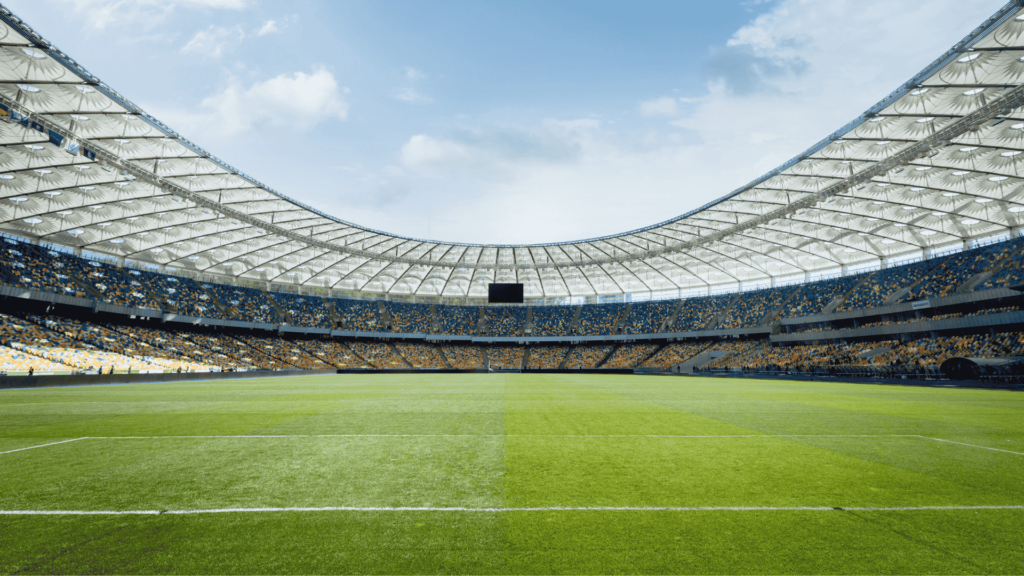Saudi Arabia’s Golden Opportunity: Real Estate and the 2034 FIFA World Cup
Saudi Arabia’s successful bid to host the 2034 FIFA World Cup marks a historic milestone for the Kingdom, propelling it into the global spotlight. This isn’t just a tournament; it’s a transformative moment for Saudi Arabia’s economy, culture, and infrastructure. and its a Saudi Arabia’s 2034 World Cup: A Real Estate Revolution and Central to this transformation is the real estate sector, poised for an unprecedented boom as the nation builds to meet the demands of a global event of this magnitude.
Aligned with Vision 2030, hosting the World Cup reinforces Saudi Arabia’s goal to diversify its economy, attract international investment, and redefine itself as a hub for innovation, culture, and tourism. The implications for the real estate market are vast, with new opportunities arising in hospitality, residential housing, commercial spaces, and sustainable urban planning.
Redefining Urban Skylines: A Real Estate Revolution
The 2034 FIFA World Cup is more than just matches played across stadiums; it’s a catalyst for reshaping the Kingdom’s cities and unlocking real estate opportunities that will endure long after the final whistle.
1. Transformative Infrastructure Projects
To host millions of fans, Saudi Arabia is undertaking monumental infrastructure upgrades:
- State-of-the-Art Stadiums: Architectural masterpieces like Riyadh’s King Fahd International Stadium will undergo modernization, while futuristic venues in NEOM and Jeddah promise to rival global icons. Learn more about these venues at FIFA’s official website.
- Transportation Overhaul: High-speed rail systems, expanded airports, and metro networks will connect visitors seamlessly, reducing travel friction across cities. Discover Saudi’s transport projects at Saudi Railways Organization.
- Revitalized Public Spaces: Urban centres will see significant upgrades to parks, promenades, and entertainment zones, creating vibrant hubs for local communities and visitors alike.
2. NEOM: A Futuristic Beacon
NEOM, the Kingdom’s $500 billion mega-project, stands as a symbol of Saudi Arabia’s ambition. This smart city is expected to host several World Cup matches, spotlighting its cutting-edge designs and sustainable ethos. NEOM’s developments — such as The Line, Oxagon, and Trojena — will redefine what it means to live and work in a 21st-century city. For more on NEOM’s vision, visit NEOM Official.
3. Hospitality Expansion
Luxury accommodations will flourish, catering to the influx of fans, officials, and tourists. With millions expected, the focus will shift to:
- High-End Hotels: Global chains are already vying to establish or expand their presence. See how hospitality is evolving at Marriott News Center.
- Short-Term Rentals: Platforms like Airbnb and Saudi-based equivalents are anticipated to surge in popularity.
- Mixed-Use Developments: Combining retail, leisure, and residential spaces to meet the evolving needs of both locals and visitors.
Real Estate as an Economic Powerhouse
Real estate will be a cornerstone of the economic ripple effects triggered by the World Cup. The tournament aligns perfectly with Vision 2030, reinforcing Saudi Arabia’s shift towards a diversified, sustainable economy.
1. Massive Economic Impact
According to industry estimates, the 2034 World Cup could inject over $10 billion into Saudi Arabia’s economy. The real estate sector will play a pivotal role in this windfall by driving investments in construction, rentals, and long-term infrastructure.
2. Job Creation Across Industries
The preparation phase alone will create thousands of jobs in construction, urban planning, and real estate services. This workforce expansion will drive demand for residential housing, schools, and community facilities, further energizing the property market.
3. Foreign Investment Surge
The Kingdom’s global exposure during the World Cup is expected to attract an influx of foreign investors. International stakeholders are already eyeing:
- Commercial Real Estate: Office spaces in Riyadh and Jeddah, appealing to multinational corporations. Learn more about commercial trends at JLL Insights.
- Retail Developments: High-end malls and shopping districts targeting affluent visitors.
- Residential Properties: Luxury villas and apartments in prime locations, designed for long-term expatriate living.
Global Appeal: A Legacy Beyond 2034
The real estate opportunities don’t end with the World Cup. Saudi Arabia is building a legacy that will last for decades, creating a permanent shift in how its cities are perceived and utilized.
1. The Rise of Sustainable Urban Design
The World Cup will accelerate the adoption of eco-friendly construction practices, as sustainability becomes a core focus:
- Green Stadiums: Solar-powered and water-efficient designs will set benchmarks for future global events.
- Smart Cities: Urban centres like NEOM will integrate AI-driven systems to optimize energy consumption, reduce waste, and enhance liveability. Explore sustainability practices at UN Habitat.
2. Long-Term Tourism Potential
Saudi Arabia’s rich history, from ancient Nabatean sites like AlUla to modern architectural marvels, will attract tourists long after the event. Real estate developments around these landmarks will offer lucrative opportunities for the hospitality sector. Learn more about AlUla at Experience AlUla.
A Roadmap for Investors
If you’re looking to capitalize on the real estate boom, the 2034 World Cup provides an unmatched opportunity. Here’s how you can position yourself strategically:
1. Focus on High-Growth Zones
Regions like Riyadh, Jeddah, and NEOM are at the forefront of development. Projects in these cities, particularly mixed-use and residential developments, promise high returns on investment.
2. Leverage Short-Term Rental Demand
With an influx of millions of visitors, short-term rental properties near stadiums and entertainment hubs will generate significant revenue. Platforms like Airbnb and local rental apps will be key players in this market.
3. Partner with Vision 2030 Initiatives
Align your investments with government-backed projects to benefit from tax incentives, infrastructure upgrades, and long-term value appreciation. For instance, developments in The Red Sea Project and Qiddiya are prime candidates for high ROI.
4. Diversify Across Sectors
Don’t limit yourself to residential real estate. Commercial spaces, retail hubs, and hospitality investments offer diverse revenue streams, catering to the multifaceted needs of a growing economy.
Real Estate’s Role in Saudi Arabia’s Renaissance
The 2034 FIFA World Cup is a once-in-a-generation opportunity for Saudi Arabia to redefine its global image and economic future. The tournament isn’t just about football; it’s about building cities of the future, creating sustainable communities, and fostering an inclusive, diversified economy.
As the Kingdom prepares to welcome the world, the real estate sector is stepping into the spotlight, ready to deliver the infrastructure and innovation required for success. For investors, developers, and visionaries, this is the perfect time to act. The opportunities are limitless, the potential unmatched, and the future of Saudi Arabia’s real estate market has never looked brighter.
Ready to explore the opportunities Saudi Arabia’s real estate market offers? Stay ahead of the curve by connecting with industry experts and subscribing to our updates. Together, let’s shape the future of property investment in the Kingdom.





